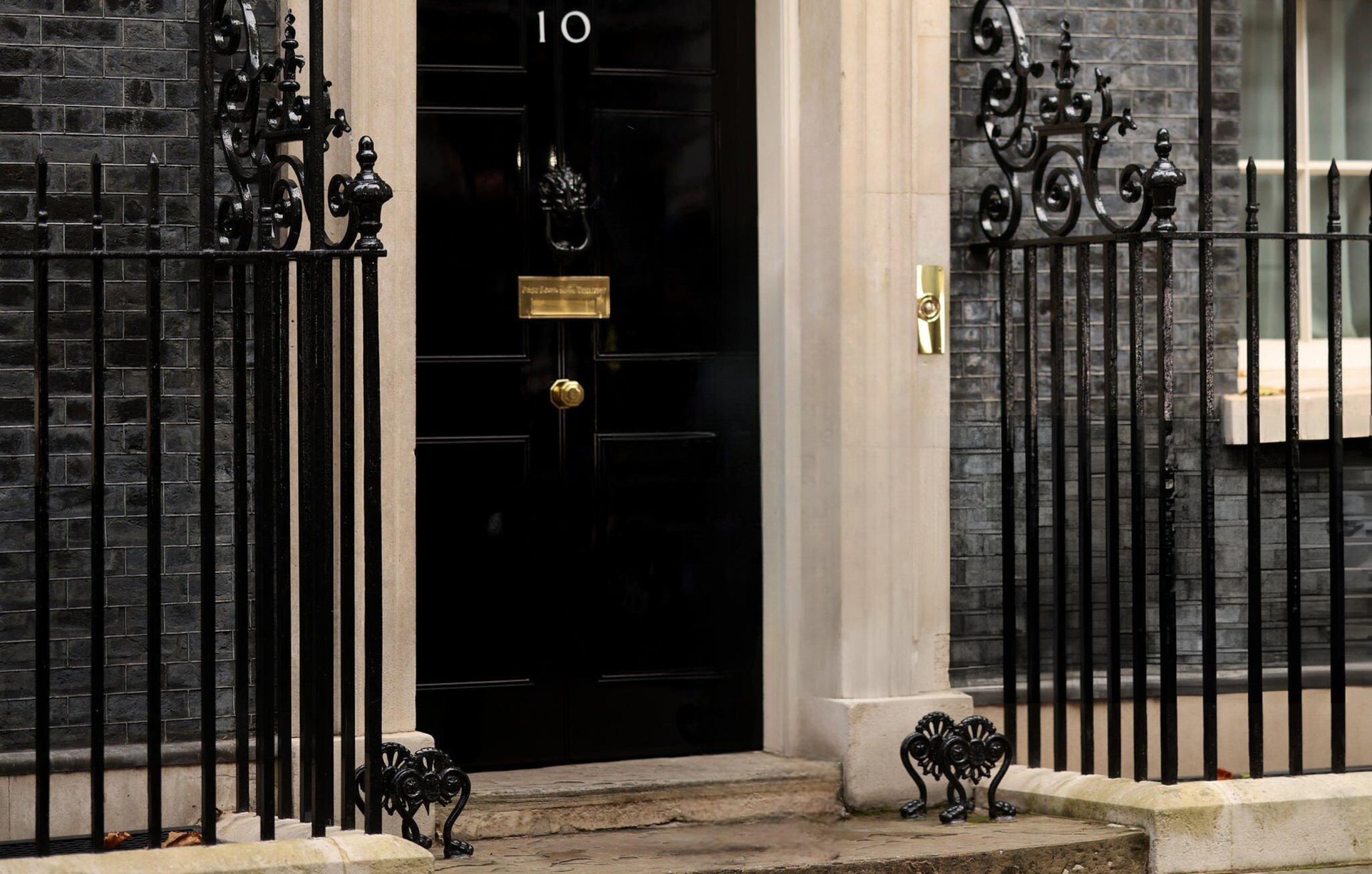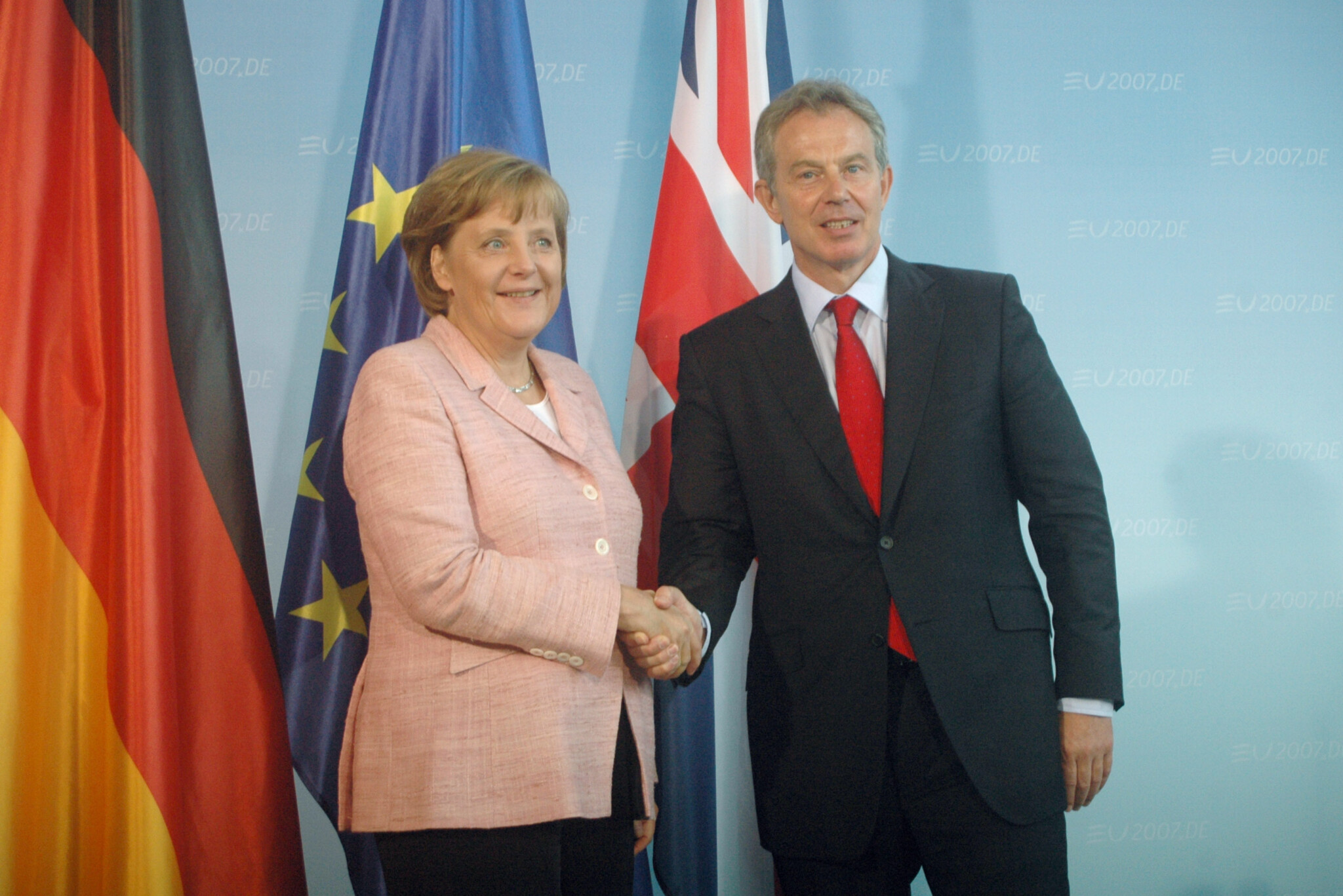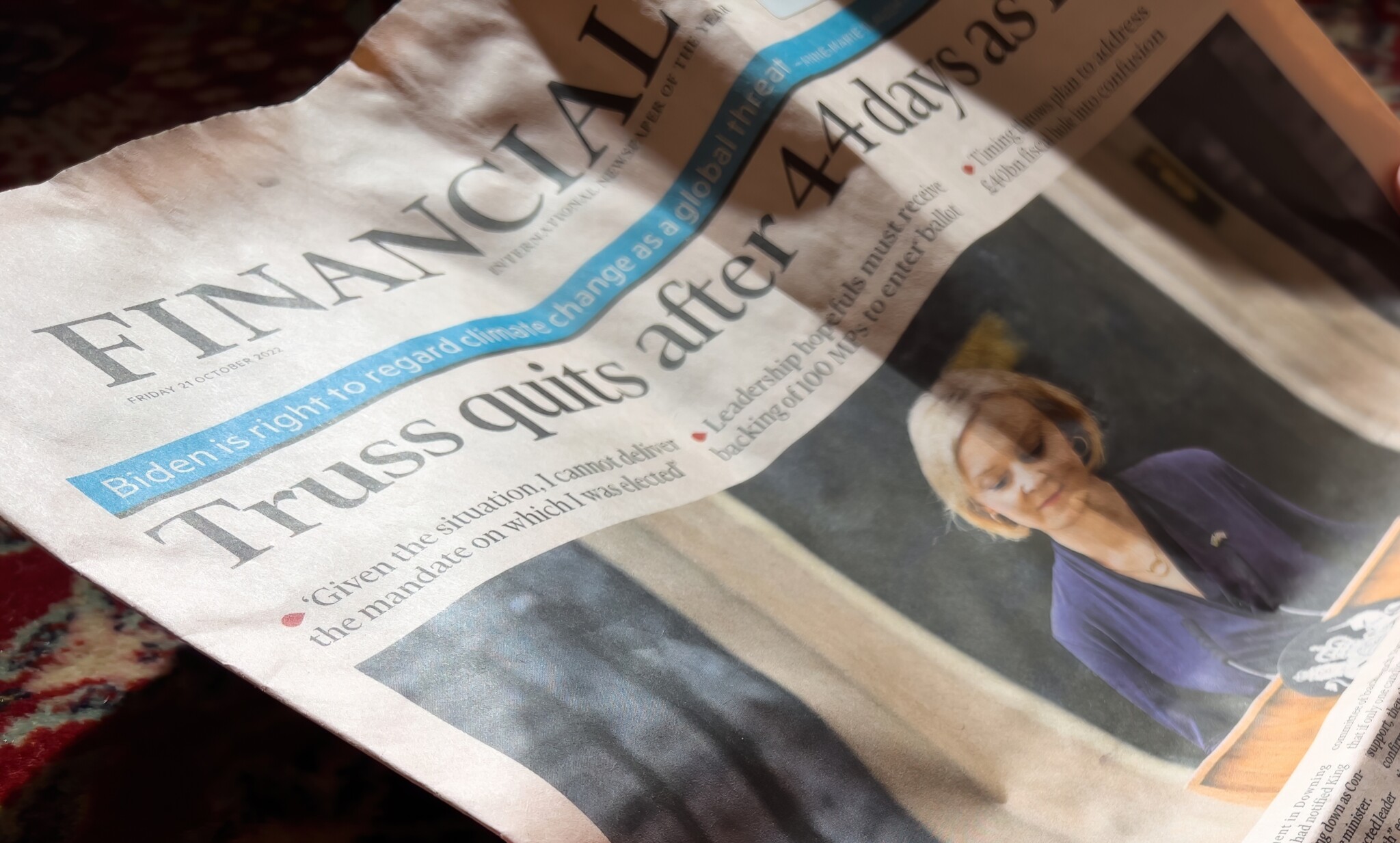The Britain I grew up in is gone. Things are getting worse, and nobody wants to avert course. People are banged up for posts on Facebook, but Keir Starmer refuses to root out complicity and corruption by those in authority over the horrific rape gangs. Postmasters and postmistresses are driven to suicide because a rogue algorithm ruined their reputations, but the government can pay billions to hand over the Chagos Islands to China-aligned Mauritius. Economic stagnation and money-printing galore, but the Treasury and Bank of England manage to remain immune from criticism. Our country approaches South Africa-style blackouts, but Ed Miliband wants to build more windmills. Our prison system is bursting, but the Home Secretary is set to import more criminals. These are the most obvious examples that spring to mind, but, everywhere we look, the British state is failing – from contracting, to infrastructure, to welfare. What on Earth has gone wrong?
It would be tempting to blame Keir Starmer and Rachel Reeves, and it is certainly true that they are guilty of an arrogant belief in technocracy for which they are now being punished. But the problem is deeper and older than those two stooges. We have a very powerful and unaccountable bureaucracy, quangocracy, and judiciary, all of which have been captured by left-wing ideology and work only to ensure their own job security. The “impartial” civil service and “independent” bodies that were variously brought in to stop corruption and outsource decisions to experts have now become the masters, not the servants. Democracy is being undermined – so much so that what we call democracy in this country is being rejected by increasing numbers of young people.
Enjoy independent, ad-free journalism - delivered to your inbox each week
The mistake of multiple governments was believing that systems and people needed to be brought in to control negative aspects of politics and democracy. The medicine has turned out to be worse than the disease it sought to cure. It’s better to have a transparent system where politicians have the freedom to deliver as they see fit, and can be voted in and out accordingly, rather than a system where so much power is in the hands of the unelected that voting becomes pointless.
The mistake of multiple governments was believing that systems and people needed to be brought in to control negative aspects of politics and democracy. The medicine has turned out to be worse than the disease it sought to cure.
The British state is unaccountable and opaque. In Ten Years to Save the West, I outlined my experiences as a Minister for a decade – eight years of which were in Cabinet. I assumed that the situation would improve as I took on more senior roles. It didn’t. Essentially, there is a permanent network of people who are at best holding back conservative policies, and in some cases actively working against them. They are often plugged in internationally – such as the Bank of England with fellow central bankers, Foreign Office officials and counterparts at the U.S. State Department, government lawyers and their associates at the International Criminal Court and the European Court of Human Rights, and so on. More broadly, there is a web of Davos-inspired internationalist globalist groupthink, which Keir Starmer has further empowered, with his open preference for the WEF over Westminster.
This deep state has reams of procedures and processes at their fingertips, and are only too quick to use legal advice, the civil service code, and the ministerial code – amongst other devices – to delay, disrupt, and thwart the plans of elected politicians. This is not always intentional on the part of the civil service: often they are merely fearful of stepping out of line. In the bureaucracy, you are far more likely to get punished for doing something, than for doing nothing. They see it as their responsibility to police ministerial behaviour. This mentality is no better demonstrated than by the fact that you have to get a “Ministerial Direction” for a policy that they consider goes against their rules. But surely the Executive should always be directed by Ministers, not the other way round?
It’s important to note that, in Britain, the bureaucrats control all the numbers. They decide what is fact and what is fiction. Now of course they can be challenged by Ministers; but this uses up huge bandwidth and, ultimately, the bureaucrats’ word goes. The Government Statistical Service provides an extra layer of defence for officials who don’t want to produce numbers. Thus, numbers relating to crucial areas such as immigration and GDP are systemically incorrect, yet the fallout rebounds on Ministers. Data is often not readily available, and certainly not the kind of payment-level data that Elon Musk has been demanding in the U.S. for his Department of Government Efficiency (DOGE). Constant excuses are offered, including “operational independence” and “data protection”, that always serve to prevent transparency.
The Government Statistical Service provides an extra layer of defence for officials who don’t want to produce numbers. Thus, numbers relating to crucial areas such as immigration and GDP are systemically incorrect, yet the fallout rebounds on Ministers.
Officialdom also controls what is and isn’t deemed lawful; and the Government Legal Service suffers from the same ideological bent as the bureaucracy overall. Ministers and officials live in constant fear of legal challenge thanks to Judicial Review, and an increasingly unaccountable judiciary. Yet they have very little ability or capacity to hire lawyers and challenge legal arguments to defend the policies in their manifestos.
It is hard to explain, to those who have not experienced being in government, the difficulties of keeping election promises when so much of the core architecture is controlled by those with an opposing view. Every day is a fresh breakout attempt from an ideological prison. It is not surprising that so many Ministers give up trying to effect change, and become creatures of the system; or why so many good people shy away from frontline politics in the first place.
The situation is even worse when an outsourced body holds the whip hand over a huge area of government policy – like the Office for Budget Responsibility (economic forecasting), Climate Change Committee (Net Zero budgets), or Migration Advisory Committee (immigration). It is deemed wrong for Ministers to engage with them too much for fear of trying to “influence” them.
Meanwhile, Ministers have very little power over appointments, meaning that the civil service can and do pursue their own agendas. The whole system is very leaky: you do not know who to trust. If you try to look outside the box in the process of making an appointment, there will be attempts to sift out anyone who is not a creature of the system. Moving somebody on is difficult and requires vast amounts of political capital. And there is a parallel chain of command through the civil service to the Cabinet Secretary, so Ministers are not solely in charge of objectives.
The existence of this powerful bureaucracy also crowds out the development of a strong political staff with experience of running things, because those jobs are hogged by career civil servants. Therefore, as I found when I got to Number 10, senior political operatives and those who know how to run programmes are very hard to find.

This is not normal. Overseas counterparts, even ones with problem bureaucracies like the U.S. and Australia, are horrified by the power and arrogance of the British bureaucracy. Britain is an outlier, although other countries suffer from the same direction of travel.
This terrible mess has been a long time in the making. Power has been taken away from Parliament and amassed by the deep state over a period of at least one hundred years. Back in 1854, the Northcote-Trevelyan Report recommended the concept of an impartial civil service to stop nepotism. Thus, the development of the civil service began. After the Second World War, Attlee nationalised vast parts of British life – land, health, education, welfare, and industry – thereby giving great power to the state. This was largely controlled by Ministers and elected officials. Joining the European Economic Community in 1973 subordinated this bureaucracy to a higher power. Over the years more “independent” bodies were created, even under Margaret Thatcher.
This terrible mess has been a long time in the making. Power has been taken away from Parliament and amassed by the deep state over a period of at least one hundred years.
By the 1990s this bureaucracy was already too powerful. But Tony Blair turbocharged it all by embedding and empowering the deep state. His vision was of a Europeanised system with a separation of powers. Fundamental changes were made to our constitution and judiciary through far-reaching legislation like the Constitutional Reform Act and the Constitutional Reform and Governance Act. The Bank of England was made independent, and the quangocracy ballooned in size. Then, under the coalition and Conservative governments, despite the rhetoric about a bonfire of the quangos, new unaccountable bodies emerged like the Office for Budget Responsibility.
The bureaucracy also has its own sizeable lobby in the House of Lords; which is populated by far too many former permanent secretaries, judges, and others revered by the Institute for Government. Former civil servants also revolve around the corporate circuit. This status quo is reinforced by a supine media which relies on officialdom for leaks and information. They shield this powerful cabal from public scrutiny with terrible reporting, perpetuating the myth that Ministers are all-powerful pantomime villains. The press will castigate a Minister for an action – or inaction – when the truth is that the power doesn’t really lie in their hands. Advisers decide, and Ministers take all the blame.
By the time I reached the position of Prime Minister in 2022, it was clear that the situation was unmanageable. But even I was shocked by the extent to which the bureaucracy would deliberately undermine the policies of an elected government. It is imperative that the Prime Minister who comes to power in 2029 deals with all of this, otherwise Britain will continue in its downward doom loop. Britain needs a Trump-style revolution.
By the time I reached the position of Prime Minister in 2022, it was clear that the situation was unmanageable. But even I was shocked by the extent to which the bureaucracy would deliberately undermine the policies of an elected government.
First and foremost, through substantial legislative changes, we must return to the situation where once again Parliament is sovereign and the Executive is able to govern. That means repealing all of the laws that have created and cultivated the unelected state, including the Human Rights Act, the Climate Change Act, the Bank of England Act, the Equality Act, the Constitutional Reform Act, and the Constitutional Reform and Governance Act. We need to restore the role of the Lord Chancellor to that which existed prior to Blair’s constitutional vandalism, and abolish the Supreme Court he created. There must be a radical overhaul of Judicial Review, to restrict its ability to block the mandate of elected Ministers. We also need to leave supranational bodies which impinge on the sovereignty of elected governments, like the International Criminal Court and the European Convention on Human Rights.

The apparatus is so calcified that the Executive needs an entirely new structure, which is streamlined and junks many of the existing arcane procedures such as ministerial “write rounds”. This will restore political accountability and be much more efficient than the current albatross.
The top tiers of the Civil Service should be politically appointed, by which I mean posts at Permanent Secretary, Director General, and Director level. Other officials should be much easier to hire and fire. Permanent Secretaries should report solely to their appointing Cabinet Minister, who in turn should report to the Prime Minister, rather than the present set-up whereby far too much power lies with a cosy self-perpetuating oligarchy of mandarins.
The Prime Minister and his team of Cabinet Ministers should be co-located in a single building with senior officials, to enable coherence in government. The Old Admiralty Building would be suitable. Numbers 10 and 11 Downing Street should be used as residences and entertaining spaces for the Prime Minister and Chancellor.
The number of government departments should be drastically reduced – around twelve should be enough – and virtually all 444 quangos should be abolished with their powers returned to ministers who can directly be held to account. Javier Milei has shown us the way.
The Prime Minister should have an Office of Management and Budget, like the U.S. system. This would be responsible for public spending, with the Treasury then responsible for monetary policy, debt, taxation, and business regulation. The Home Office should be responsible for the entire criminal justice system: from policing to prisons, while there ought to be a separate Immigration and Borders Department (once all its staff have been reviewed, and activists fired and replaced). The Lord Chancellor should once again appoint the judiciary, as they did for the best part of one thousand years until 2005.
Some will complain that these are radical measures, but I make no apology for that. I have ten years’ worth of scars on my back from seeking to navigate the current system, which has evolved into the unaccountable and unmanageable leviathan with which we are all too familiar. Tinkering and piecemeal reform is no longer the answer. Sweeping, robust change is required if we are to successfully save our failed British state.

Liz Truss served as a UK Member of Parliament between 2010 – 2024, and a minister in multiple departments for a decade. After her time as Prime Minister was brought to an abrupt end, Liz has warned insurgent populists about the power of Britain’s unelected bureaucracy, and the legislation that created this “deep state”. She is the author of Ten Years to Save the West: Lessons from the Only Conservative in the Room (2024).




Comments (2)
Only supporting or founding members can comment on our articles.